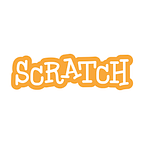Programming a Future in Buenos Aires
With Programá tu Futuro, children and adults can create a more beautiful future
By My Nguyen
María is 48-years-old. She lives in one of the poorest neighborhoods in the city of Buenos Aires and makes a living as an errand lady for a messaging office. She wants her church to have its own website.
Lucas, Martín and Camila are siblings; their mother must work all summer, so she has enrolled them in summer camp. This year, in addition to soccer and swimming lessons, they will learn a new life skill.
With Programá tu Futuro, María, Lucas, Martín and Camila will all learn how to code.
The Scratch Foundation spoke with Executive Manager at Programá tu Futuro for the Buenos Aires City Government Ministry of Education, Mercedes Werner, to discover how the city is encouraging its citizens to learn something new.
Tell us a little bit about Programá tu Futuro and your coding clubs.
Programá tu Futuro is the Buenos Aires City Government initiative to increase access to coding. The program was launched in 2014 by the Office of Technology in collaboration with the Innovation City Team. It features different methods to teach coding: online lessons, group workshops and coding clubs. Coding clubs are weekly meet-ups hosted in schools and public libraries where participants can find a mentor to help them apply coding skills to develop their own projects. Since Programá tu Futuro was formed, it has benefited over 1580 kids and 4,000 adults in the City.
How do the young people in your coding clubs use Scratch?
The Program uses existing platforms to teach coding. We partnered with Codecademy and translated the platform to Spanish for it to be available for our members. For beginners, we recommend Scratch, a programming language created by MIT. Traditionally, Scratch has been used to teach kids how to code. It is an interesting tool because kids begin to understand that they can create with technology — just use it. At summer camp, Scratch has proven to be a successful way for young people in the city to reach high levels of performance in engagement and inclusion.
Unexpectedly, we have learned that Scratch can also be an interesting tool for adults with low levels of formal education and limited exposure to technology. For example, María — the woman who wants to build a website for her local church — started to learn by using Scratch. Thus, Scratch is an effective instrument for reducing the digital gap, as individuals who don’t know how to use computers at all can start by creating with Scratch. Engagement and enthusiasm flourishes as users see quick results.
How accessible is coding in Buenos Aires?
The Buenos Aires City Government works hard to promote coding, but it is not the only agency involved in promoting this agenda. An increasing number of private organizations and NGOs are contributing to the development of this strategic sector. The tech agenda is important in Buenos Aires. Each year, the tech industry produces a significant demand for jobs that almost doubles the supply of new tech professionals, creating a large gap that results in a less competitive industry. This year, the efforts are starting to show results as more college students have chosen to pursue a STEM degree rather than a degree in liberal arts at the University of Buenos Aires.
Why is learning to program important even for students who do not plan to pursue computer science in the future?
Coding is not only essential because of its relevance in the job market. It also helps people organize information and processes, and to understand mathematics and logic, which proves to be useful for different endeavors. Coding gives people the opportunity to learn problem-solving and abstract thinking. It is a tool to experiment, to fail, to provoke and to understand how things work.
What skills or lessons do you hope those participating in your coding clubs learn?
I am particularly interested in the wide range of secondary effects that coding and access to technology can produce. People start to find more ways to communicate between themselves, they start to create new projects, businesses and organize their social lives — it brings about a strong idea of ownership, which is highly empowering.
What advice would you give a person who is interested in learning to code?
Technology is powerful when it helps people transform into who they want to be, by bringing them closer to their goals. With coding and technology, I believe small improvements in people’s lives can produce large benefits for households, entrepreneurs at the micro-level and for the economy as a whole. There is added value for the individual, but they are also contributing to the general well-being of the population.
My Nguyen is Communications Specialist for the Scratch Foundation.
Mercedes Werner is Executive Manager at Programá tu Futuro for the Buenos Aires City Government Ministry of Education. She is board member at Girls in Tech Argentina chapter, and Georgetown’s Global Competitiveness Leadership Program Fellow. Follow her on Twitter @mekiwerner or find her on LinkedIn.
